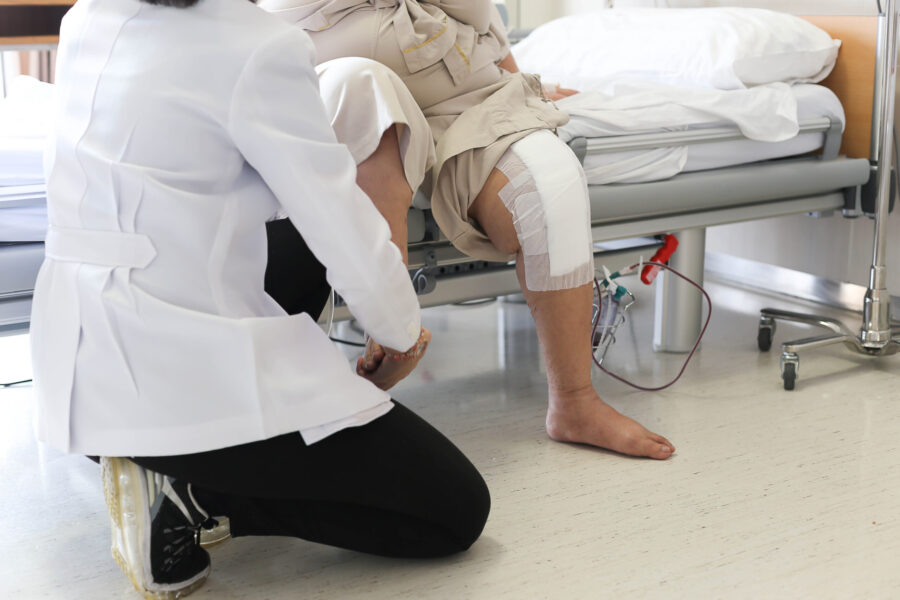The moments following an auto accident can feel overwhelming. Your mind races between assessing injuries,…
Why You Should Never Skip a Follow-Up Doctor Appointment After a Crash
By Mike Deering

Car accidents can leave you feeling disoriented, overwhelmed, and eager to return to normalcy as quickly as possible. After receiving initial medical treatment, many accident victims make the critical mistake of skipping their scheduled follow-up appointments, believing they are fine or that the worst is behind them. This decision can have devastating consequences for both your health and any potential legal claims you may need to pursue.
If you have been involved in a car accident in Virginia Beach, understanding the importance of follow-up medical care is essential not only for your physical recovery but also for protecting your legal rights. The connection between proper medical documentation and successful legal outcomes cannot be overstated, particularly when dealing with insurance companies and potential litigation.
Immediate Symptoms Can Be Misleading
The human body has remarkable ways of protecting itself during traumatic events. Adrenaline floods your system during and immediately after a car accident, often masking pain and other symptoms that would otherwise be immediately apparent. This natural response can create a false sense of well-being that leads many accident victims to believe they have escaped serious injury.
Soft tissue injuries, including whiplash, muscle strains, and ligament damage, frequently do not manifest symptoms until 24 to 72 hours after the initial trauma. The delayed onset of these symptoms means that what feels like minor discomfort on the day of the accident could develop into significant pain and mobility issues in the following days or weeks.
Traumatic brain injuries present another concerning example of delayed symptom presentation. Concussions and other forms of mild traumatic brain injury may not produce obvious symptoms immediately following the accident. Victims might experience headaches, confusion, memory problems, or changes in mood and behavior days or even weeks after the initial injury occurred.
Internal injuries pose perhaps the most serious risk when symptoms are delayed. Damage to internal organs, internal bleeding, or other complications may not produce immediate symptoms but can become life-threatening if left undiagnosed and untreated. Only through proper follow-up examinations can medical professionals identify these potentially serious conditions before they become critical.
Spinal injuries represent another category of trauma where symptoms may not be immediately apparent. Herniated discs, compressed nerves, or other spinal damage can develop gradually, with symptoms appearing weeks or months after the initial accident. Without proper follow-up care, these conditions may worsen significantly before receiving appropriate treatment.
Documentation for Legal Claims
Medical records serve as the foundation of any successful car accident legal claim. Insurance companies and opposing counsel will scrutinize every aspect of your medical treatment to determine the validity and extent of your injuries. Follow-up appointments create a comprehensive medical record that demonstrates the ongoing nature of your injuries and the necessity of continued treatment.
When you attend follow-up appointments, medical professionals document your symptoms, track your recovery progress, and note any complications or new issues that arise. This documentation creates a clear timeline that connects your injuries directly to the car accident. Without this continuous medical record, insurance companies may argue that your injuries were pre-existing or resulted from some other cause unrelated to the accident.
The gap in medical treatment that occurs when follow-up appointments are skipped provides insurance companies with ammunition to dispute your claim. They often argue that if you were truly injured, you would have sought continuous medical care. This argument becomes particularly damaging when significant time passes between your initial treatment and when you finally seek additional medical attention for ongoing symptoms.
Follow-up appointments also allow medical professionals to adjust treatment plans, prescribe additional therapies, or refer you to specialists as needed. Each of these medical decisions creates additional documentation that supports the severity and ongoing nature of your injuries. This comprehensive medical record becomes invaluable evidence when negotiating with insurance companies or presenting your case in court.
Objective medical findings discovered during follow-up appointments carry significant weight in legal proceedings. X-rays, MRI scans, CT scans, and other diagnostic tests ordered during follow-up visits provide concrete evidence of injury that cannot be easily disputed. These objective findings strengthen your legal position considerably compared to relying solely on subjective complaints of pain or discomfort.
Long-Term Health Considerations
Many car accident injuries require ongoing medical management to prevent long-term complications and chronic conditions. Skipping follow-up appointments interrupts this critical treatment process and can lead to permanent impairment or disability that could have been prevented with proper medical care.
Musculoskeletal injuries commonly sustained in car accidents can develop into chronic pain conditions without appropriate treatment and rehabilitation. What begins as acute soft tissue damage can evolve into permanent mobility limitations, chronic pain syndromes, or degenerative joint conditions if not properly managed during the critical healing period following the accident.
Psychological trauma resulting from car accidents also requires ongoing attention and treatment. Post-traumatic stress disorder, anxiety, depression, and other mental health conditions frequently develop following serious car accidents. These conditions can significantly impact your quality of life and ability to work, but they often respond well to treatment when identified and addressed promptly through regular follow-up care.
The development of scar tissue and adhesions represents another long-term concern for car accident victims. Without proper medical monitoring and intervention, soft tissue injuries can heal improperly, creating permanent restrictions in range of motion or chronic pain conditions. Physical therapy and other interventions prescribed during follow-up appointments can help prevent these complications from becoming permanent.
Sleep disorders, cognitive difficulties, and other neurological symptoms may also develop gradually following car accidents, particularly those involving head trauma. Regular follow-up appointments allow medical professionals to monitor for these symptoms and provide appropriate treatment before they become chronic conditions that significantly impact your daily life and work capacity.
Financial Implications
The financial consequences of skipping follow-up medical appointments extend far beyond the immediate cost savings. Insurance companies closely examine patterns of medical treatment when evaluating claims, and gaps in treatment often result in reduced settlement offers or denied claims altogether.
When you fail to attend follow-up appointments, insurance adjusters may argue that your injuries are not as serious as claimed. They frequently use missed appointments as evidence that you are not truly suffering from the symptoms you describe. This argument becomes particularly powerful when combined with surveillance evidence showing you engaging in activities that might seem inconsistent with your claimed injuries.
The total value of your legal claim depends heavily on the extent and duration of your medical treatment. Comprehensive medical records showing consistent follow-up care, ongoing symptoms, and the need for continued treatment support higher settlement values. Conversely, sparse medical records with significant gaps in treatment typically result in lower compensation offers.
Future medical expenses represent a significant component of many car accident settlements. However, establishing the need for future medical care requires current medical documentation showing ongoing symptoms and treatment recommendations. Without proper follow-up appointments, proving the necessity of future medical treatment becomes much more difficult, potentially costing you thousands of dollars in compensation.
Lost wages and diminished earning capacity claims also depend on thorough medical documentation. Medical professionals need to assess your ongoing limitations and restrictions through regular follow-up appointments to provide opinions about your ability to work and earn income. Without this documentation, proving lost earning capacity becomes nearly impossible.
The statute of limitations for filing car accident lawsuits in Virginia creates additional urgency around proper medical documentation. You have a limited time to file legal action, and building a strong case requires comprehensive medical records that can only be developed through consistent follow-up care throughout your recovery period.
Protecting Your Health and Legal Rights
Car accidents can change your life in ways that are not immediately apparent. The decision to attend or skip follow-up medical appointments may seem minor at the time, but it can have profound implications for both your long-term health and your ability to recover fair compensation for your injuries.
The experienced legal team at Deering Hedrick understands the critical importance of proper medical documentation in car accident cases. We have seen too many cases where accident victims undermined their own claims by failing to seek appropriate follow-up medical care. Do not let this happen to you.
If you have been involved in a car accident in Virginia Beach, protect your health and your legal rights by scheduling and attending all recommended follow-up medical appointments. Your future health and financial security may depend on the decisions you make in the days and weeks following your accident.
For experienced legal representation that understands the connection between proper medical care and successful legal outcomes, schedule a consultation with Deering Hedrick today by calling 757-383-6848. Our team is ready to help you navigate both the medical and legal challenges that follow a serious car accident.





